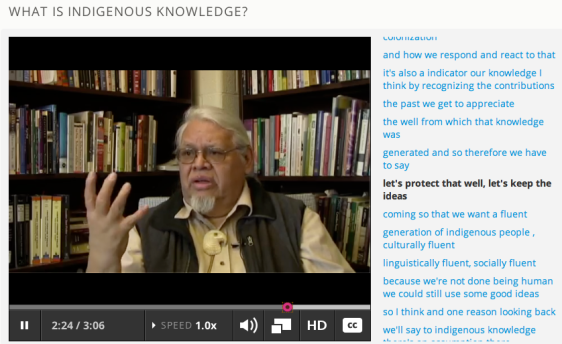Back in 2012 I took part in an Introduction to Openess in Education MOOC. I participated for a number of reasons. Firstly I wanted to experience a MOOC first hand, at the time they were a relatively new phenomena and I was curious. Secondly I was interested in the topic area, my knowledge in certain areas (for example around open data) was patchy. My final reason was to give myself something to talk about on this blog, I was struggling to find things to write about and needed a focus.
So I’m struggling again with blog content…and I need a little inspiration. Maybe it’s time for my second MOOC – an opportunity to see how things have moved on – compare and contrast.
 Today Stanford have launched a OpenEdX MOOC entitled Open Knowledge: Changing the Global Course of Learning, it’s a topic I know a fair amount about, I actually work for an organisation called Open Knowledge! So I’m interested to see if the MOOC will change how I feel about different areas of Open Knowledge and if their (the course creators) ideas radically differ from mine by the content they chose and the questions they ask. I’m also interested to see what there is still to be learnt (lots I’m sure) and to catch up new with people.
Today Stanford have launched a OpenEdX MOOC entitled Open Knowledge: Changing the Global Course of Learning, it’s a topic I know a fair amount about, I actually work for an organisation called Open Knowledge! So I’m interested to see if the MOOC will change how I feel about different areas of Open Knowledge and if their (the course creators) ideas radically differ from mine by the content they chose and the questions they ask. I’m also interested to see what there is still to be learnt (lots I’m sure) and to catch up new with people.
First thoughts…
The MOOC is research in itself. The Stanford team are carrying out research study on learners’ perceptions of open knowledge within the MOOC and one of the first activities is a survey. It will be interesting to hear their findings later on.
The Open Knowledge MOOC was developed by a team of instructors from Canada, the US, Ghana, and Mexico. They have attempted to make the MOOC as bilingual as possible with significant content in Spanish. The interface language can be changed, videos are transcribed and subtitled, content is flexible – none is mandatory – so missing content not available in your language is an option.
After browsing through the first module it looks like all the videos are available on YouTube and the recommended reading are all available online. It would be good to have the licence of content clearly marked though – I added this as a comment.
Statement of Accomplishment…
I haven’t worked out how much time I can put in to the MOOC yet but there are different ‘Statement of Accomplishment’ options depending on the time spent. These are:
- The Connecting track, for those looking to spend less time on the course.
- The Evaluating track needs a little more time to complete, and involves not only completing the Connecting requirements, but also doing some further writing.
- For the most ambitious students there is the Creating track. This will take the most time, as you will need to complete both the Connecting and Evaluating requirements, as well as build a digital project.
I’ll probably go for the Connecting Track – I need to:
- Write 4 discussion forum posts over the course of the semester. These posts should focus on topics from the weekly course content.
- Constructively comment on 4 peer discussion posts throughout the semester.
- Write 8 tweets throughout the semester. These tweets should focus on topics from the weekly course content – can’t find the hashtag for it at the moment!
- Share 8 newly discovered resources in the course Diigo group.
Write a self-assessment documenting my completion of the track requirements and describing your learning experiences.
Once I’ve got in to the MOOC I’ll publish an update to let you know how it’s going!

Pingback: How to make money from your online course | eLearn Hub